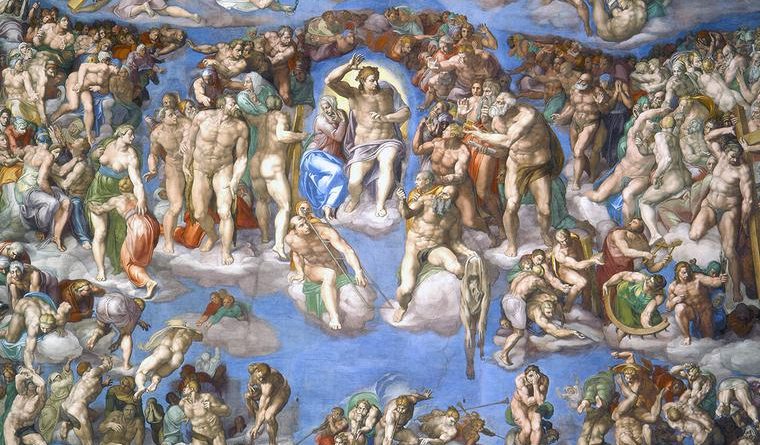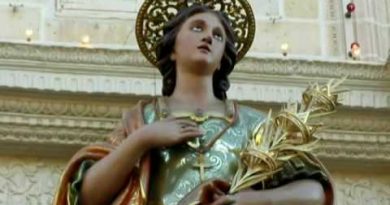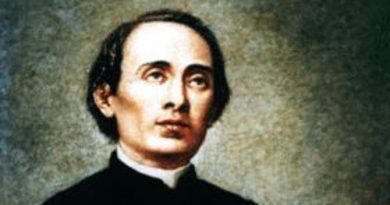The whole picture
During this month of November we celebrate All Saints as well as we lovingly commemorte the Faithful Departed, in other words the people who are being cleansed in purgatory.
Unfortunately some tend to focus only on God’s judgment or on God’s mercy. This not to mention those who simply qualify judgement, hell, purgatory and heaven as fiction. The reality is there for us to believe and take our lives seriously on earth. Seeing this confusion at what to believe in it is important that we highlight some important points on our final destiny.
It is Christ who will judge us the moment we die as well as on the last day. The first judgement that we have to experience as we instantly die is called the Particular Judgment. This particular judgment will take place in the very same place where that person dies. From then onwards the soul will go at once either for its reward, or purification or else its eternal punishment. Adding to this particular judgment each and everyone of us awaits for him and her what is called the General Judgment.
Another interesting fact is that the sentence given at the particular judgment will not be altered at the general judgment but rather it will be simply be repeated and, thus, made public to all. It is Christ who judges men instantly after death so as to reward or punish them according to their deeds.
Such words are not a way of making us prisoners of fear but are a wonderful act of mercy. Those who really love others share with them everything, including the consequence of staying in evil. Hence, it is wise that we daily prepare for our judgment by undergoing a good examination of conscience. In such an exercise we determine which are our sins and hence learn to fear the punishment they deserve. Our rewards or punishments appointed for our souls after our Particular Judgment are Heaven, Purgatory, and Hell.
Let us start from the place no one hopefully wants to go, hell. The latter is a state Hell is a state to which the wicked are condemned. In hell they are eternally deprived of the sight of God while suffering the most dreadful torments. Such torments the damned suffer include those in mind and body. This is the case because both mind and body participated in the sins they committed. It is said that the mind suffers the “pain of loss” in which it is tortured by the thought of having lost God forever, and the body suffers the “pain of sense” by which it is tortured in all its members and senses.
After the place of eternal perdition there is the intermediary state called Purgatory. In this temporary state go those who die guilty of venial sins, or without having satisfied for the punishment due to their sins. We call this place Purgatory because in it the souls are purged or purified from all their stains. Thus, it is not a permanent or lasting state for the soul. We also need to say that the souls in Purgatory are sure of their salvation. In fact, they will eventually enter heaven as soon as they are completely purified and made worthy to enjoy that presence of God which is called the Beatific Vision.
Since we do not know what souls are in Purgatory and how much time they are goint to spend there, it is essential that we keep praying for all persons who have died apparently in true faith and who are free from mortal sin. These souls we call the faithful departed. We, here on earth, can help the souls in Purgatory by our prayers, especially the Masses, fasts, alms, deeds, and indulgences. God loves the souls in Purgatory. However, He permits that they undergo their suffering because nothing defiled can enter Heaven. Hence, in His holiness demands that one is rewarded or punished according to what that person deserves.
There need for a general judgment stems from the fact that though every one is judged immediately after death, that the providence of God, which, on earth, often permits the good to suffer and the wicked to prosper, may in the end appear just before all men. When we mention the term “the Providence of God” what we generally mean is the way in which God preserves, provides for, rules and governs the world and directs all things by His infinite Will. We may also other reasons for the general judgment, particularly that Christ Our Lord may receive from the whole world the honor denied Him at His first coming, and that all may be forced to acknowledged Him their God and Redeemer.
Since our bodies took part in our acceptance or rejection of God it is just all the more just and holy that they will share in the reward or punishment of our souls, because through the resurrection they will again be united to them. The general resurrection or rising of all the dead will occur at the general judgment, when the same bodies in which we lived on earth will come forth from the grave and be united to our souls and remain united with them forever either in heaven or in hell. Hence, the bodies of the just will rise glorious and immortal whereas the bodies of the damned will also rise, but they will be condemned to eternal punishment.
The fact that we show respect for the bodies of the death already manifests that the bodies are sacred since they were the dwelling-place wherein the soul once lived. The bodies are those sacred medium through which we received the Sacraments. For these reasons they were envisaged and created by God so that one day they too share in the Heavenly glory in the Eternal Bliss.
The last state we mention to complete this picture is, surely, Heaven. Hence, the latter is the state of everlasting life. In the Heavenly glory we see God face to face and we are made like unto Him in glory to enjoy our eternal happiness. Our happiness in heaven subsists in seeing God’s beauty, in knowing Him as He acutally is, and in Him we have our desires completely fulfilled. St Paul gives us an excellent description of heaven when he says: What no eye has seen, nor ear heard, nor the heart of man conceived, what God has prepared for those who love him (1 Cor 2:9).
It needs to be said that both the rewards of heaven as well as those of hell are not the same for everyone. In fact, the law of proportionality in reward and punishment exists in these states. It all depends on the amount of good or evil one has done in this world. Since heaven and hell are eternal every person will enjoy his reward or suffer his punishment forever and ever.
In front of such a serious fate it is extremely wise that you and me always bear in mind these life-giving words of Our Lord and Saviour Jesus Christ: For what will it profit a man, if he gains the whole world and forfeits his life? Or what shall a man give in return for his life? For the Son of man is to come with his angels in the glory of his Father, and then he will repay every man for what he has done (Matt 16:26-27).
Hence, it is important that we keep in mind and, most of all, at our heart, the following essential religious truths while at the same time we are to believe them by the way we conduct our lives: (1) there is but one God, and He will reward the good and punish the wicked; (2) in God there are three Divine Persons: the Father, the Son, and the Holy Ghost, and these Divine Persons are called the Blessed Trinity; (3) Jesus Christ, the Second Person of the Blessed Trinity, became man and died for our redemption; (4) the grace of God is necessary for our salvation; and (5) the human soul is immortal.
O God, great and omnipotent judge of the living and the dead, we are to appear before you after this short life to render an account of our works. Give us the grace to prepare for our last hour by a devout and holy life, and protect us against a sudden and unprovided death. Let us remember our frailty and mortality, that we may always live in the ways of your commandments. Teach us to “watch and pray” (Lk 21:36), that when your summons comes for our departure from this world, we may go forth to meet you, experience a merciful judgment, and rejoice in everlasting happiness. We ask this through Christ our Lord. Amen.
Fr Mario Attard OFM Cap





